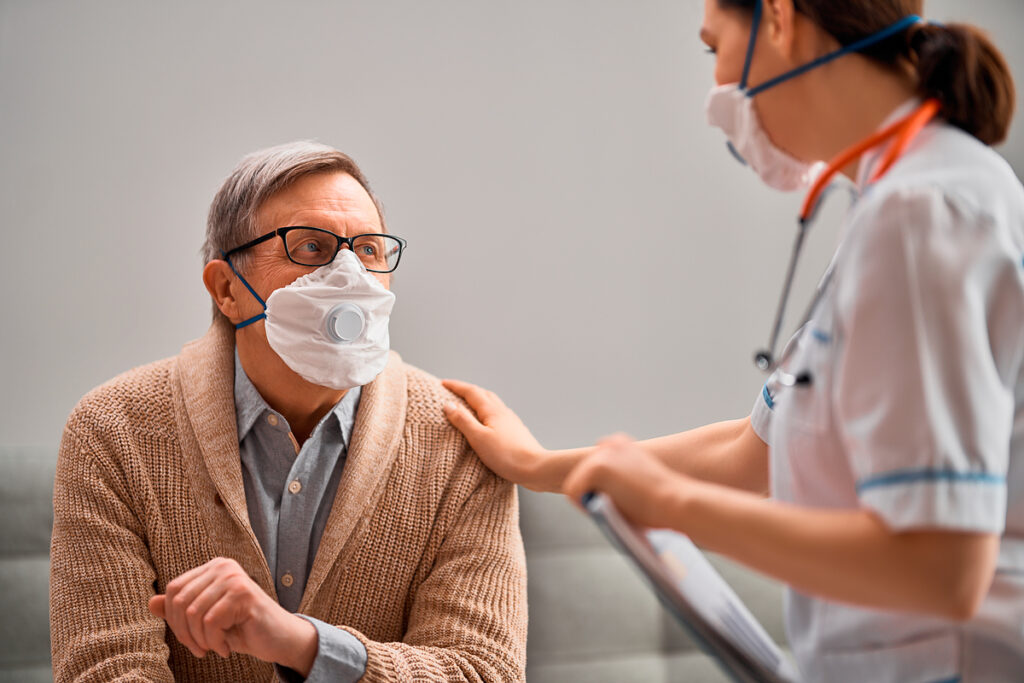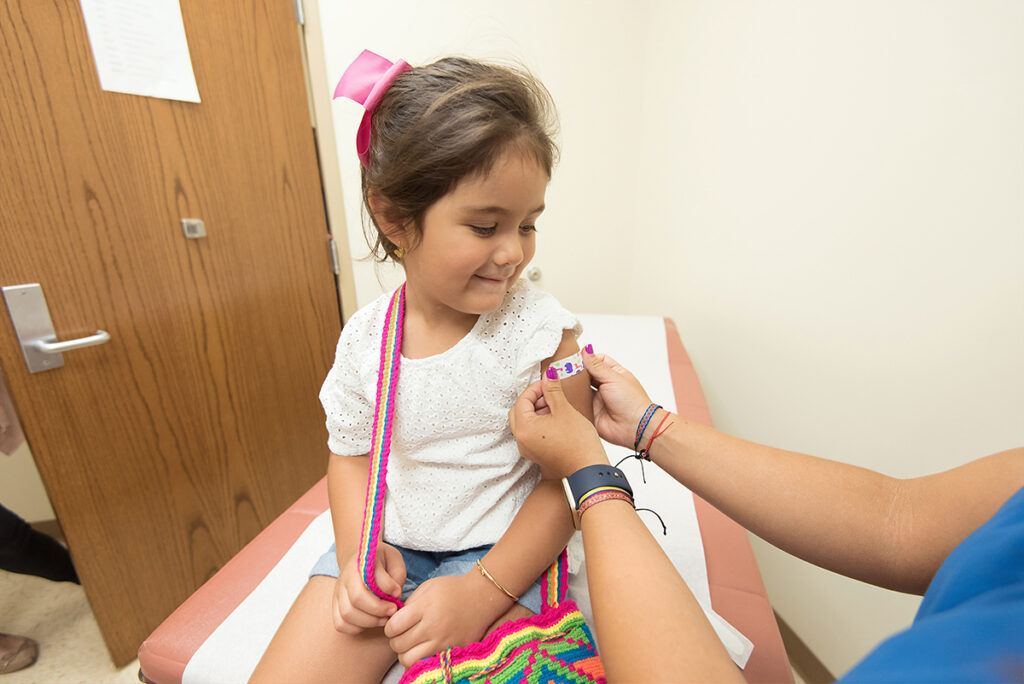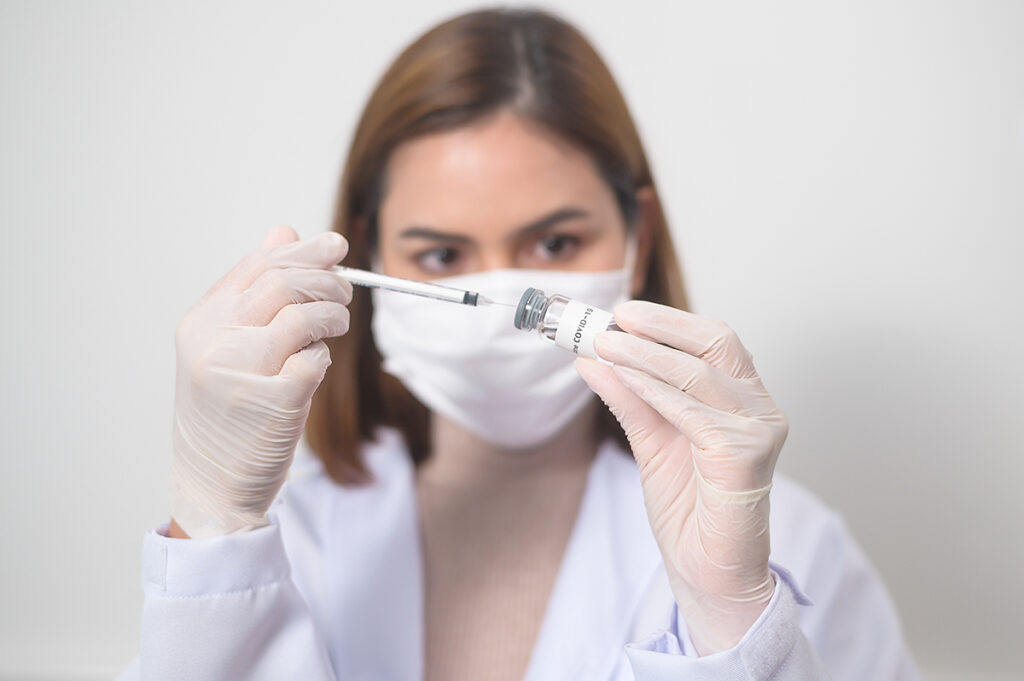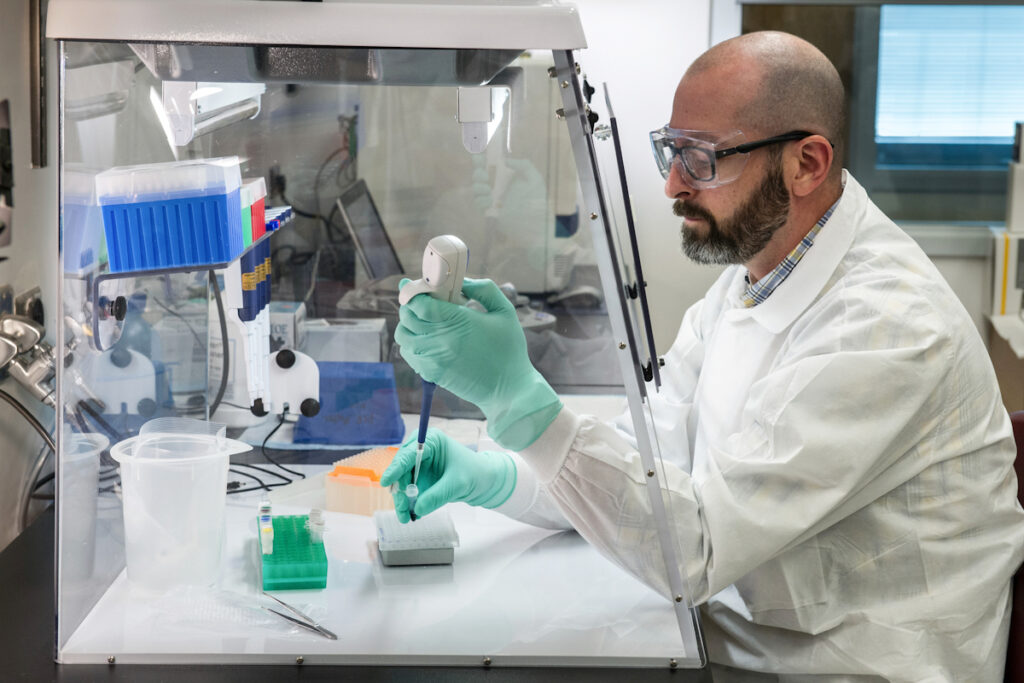Autoantibodies to Type I Interferons is The Cause of Critical COVID-19
In 90% of people, COVID-19 occurs in the form of a mild infection. However, 10% develop pneumonia, and 2% develop respiratory failure, which requires hospitalization. Age is the leading risk factor for hospitalization or death from pneumonia, with the risk doubling every 5 years.
Life-threatening COVID-19 pneumonia may be based on inborn errors of the type I interferon system (IFN-I). Autoantibodies (auto-ab) neutralizing 10 ng/ml IFN-α2 and/or IFN-ω were found in the blood of at least 10% of the international cohort of patients with life-threatening COVID-19 pneumonia, but none of the subjects with asymptomatic or oligosymptomatic infection. These auto-Abs were found in serum or plasma diluted 1/10. Therefore, in undiluted blood of patients, these auto-antibodies can probably neutralize up to 100 ng/ml IFN-α2 and/or IFN-ω. Auto-antibodies to IFN-α2 and/or IFN-ω were found mainly in men (95%) and older people (half of the patients with autoantibodies are over 65 years old).
Autoantibodies against type I interferons were detected in about 0.3% of the total population sample of 1227 people aged 20 to 69 years before the pandemic. It suggests that auto-Abs preceded SARS-CoV-2 infections and caused the critical COVID-19 rather than being driven by it.
The production of autoantibodies can be genetically initiated and begin in early childhood. That is evidenced by auto-antibodies in almost all patients with autoimmune polyendocrine syndrome type 1 (APS-1). The reason for the appearance of auto-Ab is in the mutation of the germline gene AIRE. Patients with APS-1 are at a very high risk of developing severe or critical COVID-19 pneumonia.
Autoantibodies against type I interferons are also found in patients treated with IFN-α or IFN-β, with systemic lupus erythematosus, thymus tumor, or myasthenia gravis. Auto-Abs are responsible for one-third of adverse reactions to the live attenuated yellow fever virus vaccine. These facts also indicate that autoantibodies against type I interferons were present in these patients and patients with critical COVID-19 before the viral infection.
Laboratory studies showed that in all patients tested, autoantibodies against type I interferons neutralized the protective effect of ~ 400 pg/ml IFN-α2 against SARS-CoV-2, even when plasma was diluted more than 1/1000. Since blood IFN-α concentrations during acute asymptomatic or asymptomatic SARS-CoV-2 infection are usually in the range of 1 to 100 pg/ml, and IFN-α levels in the respiratory tract may be even lower, but protect, the scientists suggested, that neutralizing autoantibodies against type I interferons at concentrations below 10 ng/ml may underlie life-threatening COVID-19 pneumonia in more than 10% of cases. The prevalence of auto-antibodies against type I interferons in the general uninfected population may increase with age. Auto-Abs may be more common in men than in women.
Scientists tested the hypothesis on patients from 38 countries on all continents: 3595 patients with confirmed critical COVID-19, 623 patients with severe COVID-19, 1639 asymptomatic or asymptomatic patients with confirmed COVID-19, and 34,159 healthy controls. Plasma or serum samples were collected from patients for immunoassay for the presence of auto-Ab IgG to IFN-I (IFN-α2 and IFN-ω).
Research Results
High and medium levels of IgG autoantibodies against IFN-α2 and/or IFN-ω were found in ~ 20% of patients with critical COVID-19
Scientists have found high levels of auto-Abs (> 100) to IFN-α2 and/or IFN-ω:
-
in 6.9% of critically ill patients;
-
in 3.4% of patients with severe COVID-19;
-
only in 0.6% of patients from the control group with the asymptomatic or low-symptom course.
Intermediate auto-Ab levels (> 30 and <100) were found:
-
in 12.7% of patients with critical COVID-19;
-
in 8.6% of patients with severe COVID-19;
-
in 11% of patients from the control group.
These results indicate that intermediate levels of anti-type I interferons can neutralize IFN and underlie the critical illness of COVID-19.
Autoantibodies against type I interferons neutralize 10 ng/ml IFN-α2 and/or IFN-ω in almost 10% of critically ill patients
Scientists investigated the ability of these auto-Abs to neutralize high concentrations of IFN type I – 10 ng/ml IFN-α2 or IFN-ω in a medium containing 1/10 of plasma or serum, which is equivalent to 100 ng/ml IFN-α2 or IFN-ω in undiluted plasma.
Scientists tested patients with high levels of auto-Ab and all patients with critical (3136 people) or severe (623 people) COVID-19 and 1076 people from the control group.
Most plasma samples with high levels of autoantibodies to IFN-α2 (> 100) were neutralizing:
-
9.8% (307 out of 3136) critically ill patients and 3.53% (22 out of 623) critically ill patients had auto-antibodies that neutralize IFN-α2 and/or IFN-ω;
-
only 0.37% (4 out of 1076) of people from the control group had neutralizing auto-Abs.
Neutralizing auto-Abs were able to neutralize both IFN-α2 and IFN-ω:
-
in 175 out of 307 critical patients (57%);
-
in 6 of the severe patients (27%);
-
none of the control group.
Only auto-Abs to IFN-α2:
-
in 106 critical patients (34.5%);
-
in 11 severe patients (50%);
-
only one of the control groups (25%).
Only auto-Ab to IFN-ω:
-
in 26 critical patients (8.5%);
-
in 5 severe patients (22%);
-
in 3 patients from the control group (75%).
None of the patients with these auto-Abs had congenital disturbances in the regulation factors of interferon TLR3 or TLR7. It shows that both congenital disorders and autoantibodies to IFN-I are independently the cause of critical illness.
Autoantibodies neutralize 100 pg/ml IFN-α2 and/or IFN-ω in at least 13.6% of critically ill patients and 6.8% of critically ill patients
Scientists investigated the neutralization of physiological concentrations of IFN-I – 100 pg/ml. Circulating auto-antibodies that neutralized 100 pg/ml IFN-α2 and/or IFN-ω in plasma 1/10 were found:
-
in 13.6% of critical patients (489 out of 3595);
-
in 6.5% (34 out of 522) severe patients;
-
in 1% of the control group (17 out of 1639).
Neutralizing auto-Abs were able to neutralize both IFN-α2 and IFN-ω:
-
in 256 out of 489 critical patients (52%);
-
in 18 out of 34 severe patients (53%);
-
in 1 out of 17 patients from the control group (6%).
IFN-α2 only:
-
in 104 critical patients (21%);
-
in 14 severe patients (41%);
-
in 4 of the control group (23.5%).
IFN-ω only:
-
in 129 critical patients (26%);
-
in 2 severe patients (6%);
-
in 12 from the control group (70%).
Further dilution of a plasma sample neutralizing 100 pg/ml IFN-I resulted in a loss of neutralizing activity.
Samples collected before COVID-19 were available from four unrelated patients who suffered from critical COVID-19, including one who died. These tests were positive for the neutralization of type I interferons with autoantibodies. One sample neutralized IFN-α2 and IFN-ω at a concentration of 10 ng/ml, two neutralized both cytokines at a 100 pg/ml concentration, and another – only IFN-ω at a concentration of 100 pg/ml. Thus, in four tested patients, before infection with SARS-CoV-2, autoantibodies were observed that could neutralize 10 ng/ml or 100 pg/ml IFN-α2 and/or IFN-ω.
All auto-antibodies, except those that neutralize only IFN-ω at a 10 ng/ml concentration, were significant risk factors when comparing patients with critical or severe COVID-19 with the control group.
Since serum/plasma samples were diluted 1/10 in these analyzes, these results indicate that more than 13.6% of life-threatening COVID-19 patients have circulating autoantibodies that neutralize 1 ng/ml IFN-α2 and/or IFN-ω in vivo.
Autoantibodies neutralize low concentrations of IFN-α2 that protect against SARS-CoV-2
A 1/100 diluted plasma of patients with auto-Abs against IFN-I neutralizes the ability of IFN-α2 (at a concentration of 400 pg/ml) to block the replication of SARS-CoV-2. This neutralization was observed in all test patients even at a 1000-fold dilution of plasma. In most patients, it was more substantial than the neutralizing effect of a commercially available neutralizing monoclonal antibody (mAb) against IFN-α2. Thus, these anti-IFN-I auto-antibodies were able to neutralize IFN-α2 at concentrations significantly higher than physiological levels.
Scientists have suggested that plasma from patients, diluted 1/10, with lower titers of auto-Abs against IFN-I, which can neutralize 100 pg/ml, but not 10 ng/ml, also neutralizes the protective effect of IFN-α2 against SARS-CoV -2.
Scientists found that plasma diluted 1/10 of four out of five critically ill patients with COVID-19 and one of two older adults with auto-Abs neutralizing 100 pg/ml IFN-α2 was able to neutralize the protective effect of ~ 400 pg/ml IFN-α2 against SARS-CoV-2, while samples from all of these people entirely or partially neutralized ~ 100 pg/ml IFN-α2. Such a neutralizing effect was not observed in any person from the control group without autoantibodies.
These results indicate that autoantibodies against IFN-I, capable of neutralizing 100 pg/ml IFN in 1% plasma, can block the protective effect of ~ 100 pg/ml or ~ 400 pg/ml IFN-α2 against SARS-CoV-2. These results increase the likelihood that even 100-fold lower levels of anti-type I interferons, capable of neutralizing lower physiological concentrations of 10 pg/ml IFN-α2, may be present in an even more significant proportion of patients.
Neutralization of type I interferons in the absence of detectable autoantibodies to IFN-α2 or IFN-ω
In some patients with neutralizing activity at 10 ng/ml IFN-α2 and/or IFN-ω, auto-IgG levels were low or undetectable.
For these people, scientists estimated the prevalence of auto-Ab IgA and IgM against IFN-I. None of the patients tested (12 people) had detectable IgA or IgM auto-Ab titers.
Then the scientists tested an alternative hypothesis that these auto-Abs were directed against IFN-I receptors – then plasma samples from these patients could neutralize IFN-β. None of the samples neutralized IFN-β. The hypothesis turned out to be wrong.
A plausible alternative hypothesis is that part of the plasma sample may react with materials used in autoantibody immunoassays, and therefore no auto-antibodies are detected. This observation has important clinical implications: if autoantibodies against IFN-I are not detected, this does not exclude the possibility of the presence of such antibodies and their neutralizing ability.
Autoantibodies usually neutralize 13 subtypes of IFN-α and/or IFN-ω
Patients with neutralizing auto-antibodies to IFN-ω alone do not neutralize any of the 13 subtypes of IFN-α, while patients with neutralizing auto-antibodies to IFN-α2 neutralize all these subtypes.
Autoantibodies neutralize IFN-β in 1.3% of critically ill patients
Scientists examined 1,773 patients with acute COVID-19 pneumonia and found that 1.3% (23 people) had neutralizing autoantibodies against IFN-β. In contrast, such antibodies were not present in any of the 187 severe patients tested and were found in only two of 1,044 control patients (0.18%).
Interestingly, only six out of 23 (21.7%) critically ill patients also had auto-antibodies that neutralized IFN-α2 and/or IFN-ω at a concentration of 100 pg/ml. None of the control patients had such antibodies.
Five of these six patients had auto-antibodies that neutralized all three cytokines. All other critical patients and the control group had only neutralizing autoantibodies against IFN-β.
The presence of neutralizing autoantibodies against IFN-β is associated with critical but not severe illness. Since the majority (78.3%) of patients with neutralizing autoantibodies against IFN-β did not have neutralizing autoantibodies against IFN-α2 or IFN-ω, auto-antibodies against IFN-β may also underlie life-threatening COVID-19.
Neutralizing autoantibodies against type I interferons were found in at least 20% of critically ill patients over 80 years old
In patients with critical pneumonia COVID-19 (3595 people), the average age was 61 years, and 73% of patients were men. Critical patients with auto-antibodies that neutralize IFN-α and/or IFN-ω at a 10 ng/ml concentration were significantly older than patients without auto-antibodies: the average age was 65.8 compared to 61.6 years.
The proportion of critically ill patients with COVID-19 with autoantibodies neutralizing 10 ng/ml IFN-α2 and/or IFN-ω increases with age:
-
up to 40 years – 5% of patients;
-
from 40 to 49 years old – 6.8%;
-
from 50 to 59 years old – 7.1%;
-
from 60 to 69 years old – 10.7%;
-
from 70 to 79 years old – 12.3%;
-
over 80 – about 14%.
Among critically ill patients, the proportion of carriers of auto-Abs was more stable with age. Similar results were obtained for patients with critical COVID-19 with neutralizing auto-Abs to 100 pg/ml IFN-α2 and/or IFN-ω, but with a tremendous difference between age groups: the proportion of patients with auto-Ab ranged from 9.6 % of patients under the age of 40 to more than 21% of patients over 80 years of age.
Among men, the proportion of patients with critical COVID-19 with auto-Abs neutralizing 100 pg/ml IFN-α2 and/or IFN-ω increased to 23% over the age of 80.
A completely different picture was observed for auto-antibodies neutralizing 10 ng/ml IFN-β, with a more stable proportion of auto-antibodies carriers depending on age.
In general, the prevalence of autoantibodies neutralizing 10 ng/ml and/or 100 pg/ml IFN-α2 and/or IFN-ω increased dramatically with age in critically ill patients. Autoantibodies have been found in more than 20% of patients and 23% of men over 80 with critical COVID-19.
Neutralizing autoantibodies against type I interferons were found in at least 18% of deceased patients
For 3,595 patients with critical COVID-19, scientists analyzed data from 1,124 deaths. These patients ranged from 20 days to 99 years (mean age: 71 years), 73% were male, and all had confirmed SARS-CoV-2 infection and acute COVID-19 pneumonia before death. Results:
-
In 13.3% of deceased patients, autoantibodies were found that neutralized 10 ng/ml IFN-α2 and/or IFN-ω.
-
18.5% contained auto-Abs neutralizing 100 pg/ml of one or both cytokines.
-
0.9% had auto-Abs that neutralize IFN-β.
The prevalence of neutralizing autoantibodies against type I interferons in patients who died from COVID-19 moderately increased with age:
• for an IFN-I concentration of 100 pg/ml, the prevalence of auto-Abs that neutralize IFN-α2 and/or IFN-ω was:
-
20% before the age of 40;
-
14% – from 40 to 49 years old;
-
12.5% - from 50 to 60 years old;
-
16.3% – from 60 to 69 years old;
-
17.9% – from 70 to 79 years old;
-
more than 23% are over 80 years old.
In general, at least 18% of patients dying from COVID-19 pneumonia have autoantibodies capable of neutralizing 100 pg/ml of type I interferons in plasma 1/10.
Autoantibodies capable of neutralizing IFN-α2 and/or IFN-ω at a concentration of 10 ng/ml and 100 pg/ml were found in 0.53% in 2.3% of people from the general population, respectively
Scientists tested a cohort of 34,159 people between the ages of 20 and 100 from the general population with an equal distribution between the sexes. Until 2018, blood samples were collected from 20,767 people, in 2019 – from 13,392 people. Scientists performed serological tests for SARS-CoV-2 on samples collected in 2019 and included only people who were not infected with SARS-CoV-2 in the sample.
Only 0.05% and 4.2% had auto-Abs to IFN-α2 and/or IFN-ω above the threshold values of 100 and 30, respectively.
Scientists evaluated the ability of these antibodies to neutralize 10 ng/ml IFN-α2 or IFN-ω for all people with high or moderate levels of auto-IgG to IFN-α2 or IFN-ω. In 181 people, neutralizing auto-Abs were found: 1/10 of the plasma dilution neutralized 10 ng/ml IFN-α2 and/or IFN-ω. That gave an overall prevalence of 0.53%.
The prevalence of auto-Abs neutralizing 10 ng/ml IFN-β is 0.26% (in 9583 people).
For a subgroup of 10,778 samples, the scientists further evaluated the ability of plasma/serum samples diluted 1/10 to neutralize 100 pg/ml IFN-α2 and/or IFN-ω. The prevalence of auto-Abs neutralizing 100 pg/ml IFN-α2 and/or IFN-ω was 2.3%.
The prevalence of autoantibodies to IFN-α2 and/or IFN-ω in the general population increases sharply after 70 years
The prevalence of auto-Abs, neutralizing 10 ng/ml of type I interferon, was more than 10 times higher in people over 70 years old than in people younger than this age:
-
0.17% – under 70 years old;
-
0.9% – from 70 to 75 years old;
-
1.6% – from 75 to 80 years old;
-
more than 4% – from 80 to 85 years old.
Interestingly, after age 85, the prevalence of these autoantibodies dropped to about 2.6%.
With age, there was a substantial increase in the prevalence of auto-antibodies neutralizing 100 pg/ml IFN-α2 and/or IFN-ω. The prevalence nearly doubles every five years between the ages of 65 and 85:
-
0.87% – from 65 to 70 years old;
-
1.73% – from 70 to 75 years old;
-
7.1% – from 75 to 80 years old.
After 85 years, there was a general decrease in the prevalence of auto-Ab, especially in men.
In contrast, the prevalence of auto-antibodies that neutralize IFN-β did not change significantly with age.
All autoantibodies were significant risk factors when comparing critically or severely COVID-19 patients with the general population.
These results show that the prevalence of autoantibodies neutralizing type I interferons increases in elderly uninfected individuals with age, while at least 4% of people over 70 years of age have a positive result for auto-Ab to IFN-α2 and/or IFN-ω, and this auto-Ab were detected before COVID-19.
Conclusions
Autoantibodies to type I interferons underlie about 20% of cases of acute COVID-19 pneumonia in patients over the age of 80 and about 20% of all deaths from COVID-19. The prevalence of autoantibodies increases with age among the uninfected population in general, reaching over 4% among people over 70 years of age. Autoantibodies to IFN-α2 and/or IFN-ω are clearly present before infection with SARS-CoV-2. Some of these autoantibodies are not detectable by immunoassay and can only be detected by neutralization assay.
The prevalence of autoantibodies neutralizing 10 ng/ml (and 100 pg/ml) of type I interferons, with the exception of IFN-β, significantly increases with age in the general population:
-
0.17% (1.1%) – up to 70 years;
-
more than 1.4% (4.4%) – after 70 years;
-
4.2% (7.1%) – from 80 to 85 years old.
IFN-I levels found in the blood of patients with acute and benign SARS-CoV-2 infections range from 1 to 100 pg/ml. In vitro concentrations of IFN-I up to 100 pg/ml can suppress the replication of SARS-CoV-2 in epithelial cells. The presence of autoantibodies to IFN-I explains the significant increase in the risk of critical COVID-19 in the elderly.
Clinical application of the research results:
-
In patients infected with SARS-CoV-2, the presence of autoantibodies against type I interferons can be quickly and easily checked. Screening for these antibodies is possible even in the general population before infection. The IFN-neutralizing activity of these antibodies is better defined than their simple detection, which can be false negative. Autoantibody tests should be performed for at least three interferons: IFN-α2, IFN-ω, and IFN-β. Particular attention should be paid to the elderly and patients with autoimmune or genetic diseases associated with autoantibodies to IFN-I.
-
Patients with autoantibodies to type I interferons should be vaccinated against COVID-19 first.
-
Live attenuated vaccines, including yellow fever vaccine (YFV-17D) and SARS-CoV-2 vaccines using YFV-17D as a base, should not be given to patients with IFN-I autoantibodies.
-
Before infection with SARS-CoV-2, patients with autoantibodies appeared healthy. However, they should also be closely monitored for other viral diseases, as evidenced by adverse reactions to the Yellow fever vaccine.
-
Unvaccinated patients with autoantibodies to type I interferons infected with SARS-CoV-2 should be hospitalized for immediate treatment. Early treatment with monoclonal antibodies can be given to patients without symptoms of severe COVID-19 pneumonia, and IFN-β can be administered in the absence of both pneumonia and IFN-β autoantibodies. Another treatment option for patients who already have pneumonia is plasma exchange therapy.
-
Blood products, especially plasma, should be tested for the presence of IFN autoantibodies. Any products containing such antibodies should be excluded from donation. Plasma from donors recovering from COVID-19 should be tested for the presence of these autoantibodies.
-
Given the documented harmlessness and potential efficacy of a single injection, early IFN-β therapy may be considered for those who have been in contact with infectious subjects or within the first week after infection, even in the absence or prior to the documentation of autoantibodies to type I interferons in elderly patients who have a higher risk of acute pneumonia and the presence of autoantibodies to IFN-α2 and IFN-ω, but not IFN-β. Another possibility is the introduction of monoclonal antibodies that can neutralize SARS-CoV-2.



